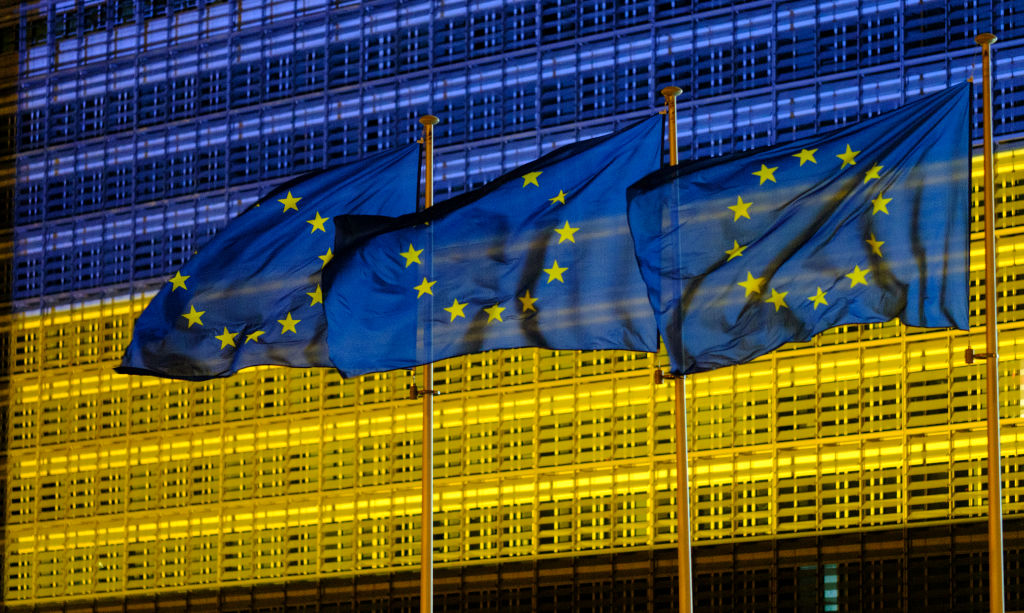
The European Union has reacted faster, more decisively and with greater unity to Russia’s invasion of Ukraine than to any previous crisis. Together with its allies, the EU and its member states have provided important military, economic and humanitarian support to the Ukrainian government and put severe economic pressure on the Kremlin to stop its atrocities. But the difficulties the EU faced in imposing a common oil embargo against Russia reveal differences among national governments that also reflect diverging views on how to deal with the Zeitenwende we’ve been experiencing since 24 February.
This is no moment for disunity. Russian President Vladimir Putin’s war of aggression against Ukraine has opened a new chapter in Europe’s seemingly permanent crisis and represents a structural break with the past, profoundly disrupting the continent’s security architecture and undermining fundamental assumptions in most areas of EU policymaking.
EU leaders must have the political will and stamina to prepare the union for a new era—with no taboos when it comes to implementing major policy innovations and establishing more effective governance structures. To do so, they should continue to demonstrate both unity and ambition along a concrete reform path.
At next week’s EU summit, therefore, the European Council should agree to establish a ‘Wise Wo|men Group’ tasked with identifying core policy priorities and governance reforms that reflect current imperatives, as well as the outcome of the Conference on the Future of Europe. Substantial measures require more than well-intended speeches and declarations. The European Parliament responded to the conference by calling for a European Convention. Now, EU governments also have to commit to specific reforms.
A Wise Wo|men Group—including both experienced political heavyweights and representatives of younger generations—would help EU leaders to agree on a list of urgent policy innovations, identify ways to improve the union’s governance structure, and forge an ambitious reform roadmap.
Several areas demand attention. For starters, there’s the EU’s approach to its neighborhood and enlargement in light of the new situation after 24 February, as well as the union’s role in defence investments and the scope of its mutual-defence clause. There’s also the need to redefine radically the EU’s energy dependence and its efforts to counter climate change, which are related to the union’s economic resilience and strategic autonomy in core areas.
Then there are the institutional reforms needed to strengthen protection of basic values and principles such as the rule of law, and to improve decision-making capacity through extended use of qualified majority voting. Finally, the group should consider how to deepen EU democracy by balancing the benefits of representative institutions with the need to enhance citizens’ participation in the union’s policymaking processes.
To link its work to the input provided by citizens during the Conference on the Future of Europe, the Wise Wo|men Group should present and discuss its proposals with the ‘ambassadors’ who represented the randomly selected members of the European citizens’ panels in the conference plenary. The group should submit its final report in the second half of 2022 to the European Council and the European Parliament, which should then commit to a detailed follow-up process.
Many reform objectives can be accomplished under the existing EU treaties. But the Wise Wo|men Group might conclude that some innovations will also require treaty amendments to ensure that the EU will be structurally able to respond swiftly to current and future challenges. In this case, the group should compile a list of specific changes. Identifying such amendments could help ensure that future efforts to adapt the union’s primary law will differ from the experience of the Constitutional Convention in 2002–03, as these efforts would adhere to a more clearly defined mandate and limited timeframe.
For Europe merely to move towards some form of modification of the status quo ante would be not only naive, but also dangerous. We should avoid finding ourselves in a situation where we will regret not having acted earlier and more decisively, especially when issues of war and peace are at stake.
The crisis in Ukraine has shown that only by acting together can the EU hope to remain an effective player. But this is by no means a foregone conclusion. The EU27 must respond to today’s transformative times by paving the way for an ambitious joint future. That means showing the political readiness and determination needed for a substantial reform of EU policies and governance.

